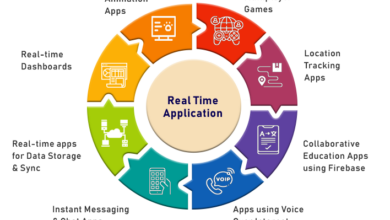
5 Reasons to Kickstart Your Coding Career
5 Reasons to Kickstart Your Career in Coding: Ever felt that nagging pull towards a more fulfilling, challenging, and lucrative career? The tech world is booming, and coding is at its heart. This isn’t just about lines of code; it’s about building the future, solving problems creatively, and opening doors to countless opportunities. Get ready to discover why learning to code could be the best decision you ever make.
From the high demand and impressive salaries to the sheer variety of career paths and the constant opportunities for growth, a career in coding offers something for everyone. Whether you’re a recent graduate, a career changer, or simply looking for a new challenge, this post will illuminate five compelling reasons why now is the perfect time to dive into the world of coding.
High Demand & Job Security

The tech industry is booming, and at its heart lies the ever-increasing demand for skilled coders. This isn’t just a fleeting trend; it’s a fundamental shift in how our world operates, with software impacting nearly every aspect of modern life. A career in coding offers not only high earning potential but also significant job security and longevity, making it an exceptionally attractive career path for those seeking stability and growth.The current and projected demand for skilled coders is incredibly high across various industries.
From established tech giants to burgeoning startups and even traditional sectors like finance and healthcare, the need for individuals proficient in programming languages continues to escalate. This surge is fueled by the ongoing digital transformation sweeping across all sectors, demanding more sophisticated software solutions and digital infrastructure. This means opportunities exist not just in Silicon Valley, but in cities and towns across the globe.
Specific Coding Jobs with High Salaries and Growth Potential
Software developers, data scientists, cybersecurity specialists, and machine learning engineers are just a few examples of coding-related roles experiencing explosive growth and offering substantial salaries. A software developer, for example, can specialize in areas like web development (front-end, back-end, or full-stack), mobile app development, or game development, each offering diverse career paths and opportunities. Data scientists are in high demand due to the explosion of big data, using their coding skills to analyze vast datasets and extract valuable insights for businesses.
Cybersecurity specialists are crucial in protecting sensitive data from increasingly sophisticated cyber threats, and machine learning engineers are at the forefront of developing cutting-edge AI applications. These roles consistently rank among the highest-paying jobs, with salaries often exceeding six figures and substantial potential for bonuses and stock options.
Job Security and Longevity of a Coding Career
The Bureau of Labor Statistics projects significant growth in computer and information technology occupations for the coming decade. This projection underscores the long-term stability inherent in a coding career. While specific technologies and languages may evolve, the core skills of problem-solving, logical thinking, and algorithmic design remain consistently in demand. The adaptability required in this field translates into a career that can weather economic fluctuations better than many other professions.
Moreover, the constantly evolving nature of technology ensures that experienced coders remain valuable assets, often transitioning into senior roles, leadership positions, or entrepreneurial ventures. The skills learned are transferable across various platforms and technologies, allowing for career pivots and ongoing professional development.
Salary Comparison of Coders with Other Professions
The following table compares the average salaries of coders with other professions requiring similar education levels, illustrating the competitive compensation package associated with a career in coding. Note that these are average figures and can vary based on experience, location, and specific role.
| Profession | Average Annual Salary (USD) | Required Education | Job Growth Outlook |
|---|---|---|---|
| Software Developer | $110,000 | Bachelor’s Degree | High |
| Data Scientist | $120,000 | Master’s Degree | Very High |
| Civil Engineer | $85,000 | Bachelor’s Degree | Moderate |
| Financial Analyst | $90,000 | Bachelor’s Degree | Moderate |
Diverse Career Paths
The beauty of a coding career lies not just in its high demand, but in its incredible versatility. It’s not a one-size-fits-all profession; instead, it offers a diverse range of specializations and roles, allowing you to tailor your career path to your interests and skills. This adaptability ensures that even as technology evolves, you can continue to grow and adapt within the field.The coding world is a vast landscape, with numerous specializations offering unique challenges and rewards.
Understanding these diverse paths is crucial for anyone considering a career in this dynamic field. From creating visually stunning websites to analyzing massive datasets or building immersive gaming experiences, the possibilities are virtually limitless.
Coding Specializations
The coding field encompasses a wide array of specializations, each demanding a unique skillset and offering distinct career trajectories. Web development, data science, and game development are just a few examples of the many paths you can choose. Let’s delve deeper into these exciting areas.Web development focuses on building and maintaining websites and web applications. This specialization is further divided into front-end development, back-end development, and full-stack development.
Front-end developers concentrate on the user interface (UI) and user experience (UX), ensuring a visually appealing and user-friendly website. They work with languages like HTML, CSS, and JavaScript. Back-end developers handle the server-side logic and databases, ensuring the website functions correctly and securely. They might use languages like Python, Java, PHP, or Node.js. Full-stack developers possess expertise in both front-end and back-end development, providing a comprehensive skill set for building complete web applications.Data science involves extracting knowledge and insights from structured and unstructured data.
Data scientists use programming languages like Python and R, along with statistical modeling and machine learning techniques, to analyze data, identify trends, and build predictive models. Their work is crucial in various industries, from finance and healthcare to marketing and e-commerce.Game development focuses on creating interactive and engaging video games. This involves programming game logic, designing game mechanics, and implementing graphics and sound.
Game developers often work with specialized game engines like Unity or Unreal Engine and programming languages such as C++ or C#.
Coding Roles in a Company
The roles a coder can fill within a company are as varied as the specializations themselves. Understanding these different roles is crucial for navigating your career path.A front-end developer is responsible for the user interface and user experience of a website or application. They ensure the site is visually appealing, easy to navigate, and responsive across different devices.A back-end developer focuses on the server-side logic and databases.
They handle data processing, security, and the overall functionality of the application.A full-stack developer possesses skills in both front-end and back-end development, making them valuable assets in building complete applications. They can work independently on all aspects of a project, or collaborate with specialized front-end or back-end developers.Beyond these core roles, there are also specialized positions such as DevOps engineers, who manage the infrastructure and deployment of applications, and database administrators, who manage and maintain databases.
Industries Employing Coders
The demand for coders extends far beyond the technology sector. Numerous industries rely heavily on software and applications, creating a wide range of employment opportunities.
So, you’re thinking about those 5 reasons to kickstart your coding career? High demand, great pay, and the ability to build amazing things are definitely up there. But did you know that the future of app development is evolving rapidly, with exciting opportunities like those discussed in this article on domino app dev the low code and pro code future ?
Learning to code opens doors to these innovations, adding another compelling reason to dive in. Ultimately, a coding career offers flexibility, creativity, and constant learning – making it a truly rewarding path.
- Technology
- Finance
- Healthcare
- Retail
- Manufacturing
- Education
- Government
- Entertainment
Lucrative Earning Potential

Coding offers a compelling financial incentive, making it a smart career choice for those seeking both professional fulfillment and substantial financial rewards. The earning potential in this field is significantly higher than many other professions, and the potential for growth is substantial, especially with experience and specialization.The salary range for coders is incredibly broad, influenced by factors like experience, location, specific skills, and the type of company.
Entry-level developers can expect to earn anywhere from $50,000 to $80,000 annually, depending on their skills and location. More experienced developers, particularly those with specialized skills in high-demand areas like artificial intelligence or cybersecurity, can easily command salaries exceeding $150,000 per year, and senior-level positions often reach well into the six-figure range. In some tech hubs like Silicon Valley or New York City, these figures can be even higher.
Salary Comparison with Other Careers
Comparing coding salaries to other technical and non-technical careers reveals a significant advantage. While other technical fields like network engineering or data analysis offer competitive salaries, coding consistently ranks among the highest-paying. Non-technical careers, such as teaching or retail, generally offer significantly lower earning potential. For example, a seasoned software engineer’s salary could be double or even triple that of a teacher with the same years of experience, depending on location and specific roles.
This difference highlights the significant financial benefits associated with a career in coding.
Examples of Successful Coders and Their Income
Many successful coders have achieved remarkable financial success. While precise income figures are often kept private, publicly available information and industry reports suggest that highly skilled and in-demand coders can earn millions annually. For instance, founders of successful tech startups, often with strong coding backgrounds, frequently see massive returns on their investments and accumulated wealth through stock options and company valuations.
Even without starting their own company, top-tier engineers at major tech firms can earn hundreds of thousands of dollars annually through salaries, bonuses, and stock options. These examples demonstrate the extraordinary earning potential available to those who excel in the coding field.
Potential Salary Growth Over Time
The following table illustrates the potential salary growth over time for different coding specializations. These figures are estimates based on industry averages and may vary depending on individual skills, experience, and location.
| Specialization | Entry-Level (Year 1-3) | Mid-Level (Year 4-7) | Senior-Level (Year 8+) |
|---|---|---|---|
| Frontend Developer | $60,000 – $80,000 | $90,000 – $120,000 | $120,000 – $180,000+ |
| Backend Developer | $65,000 – $85,000 | $95,000 – $130,000 | $130,000 – $200,000+ |
| Full-Stack Developer | $70,000 – $90,000 | $100,000 – $140,000 | $140,000 – $220,000+ |
| Data Scientist | $75,000 – $95,000 | $110,000 – $150,000 | $150,000 – $250,000+ |
| Mobile App Developer | $60,000 – $80,000 | $90,000 – $120,000 | $120,000 – $180,000+ |
Continuous Learning & Growth
The tech world is a dynamic landscape, constantly evolving with new languages, frameworks, and methodologies emerging at a rapid pace. This constant change, however, isn’t something to fear; it’s a significant advantage for coders. The need for continuous learning isn’t just beneficial, it’s essential for maintaining a competitive edge and ensuring a long, fulfilling career in this field.
The opportunities for growth and skill development are vast and readily available.The coding field thrives on continuous learning and adaptation. Staying current requires a proactive approach to upskilling and reskilling, embracing new technologies as they emerge, and consistently expanding your knowledge base. This isn’t just about keeping up; it’s about actively shaping your career path and staying ahead of the curve.
This constant evolution presents exciting opportunities to specialize in niche areas, leading to higher earning potential and greater job satisfaction.
Resources for Upskilling and Reskilling
Numerous resources exist to support continuous learning in coding. Online learning platforms like Coursera, edX, Udemy, and Udacity offer a wide array of courses, from introductory programming to advanced specializations in areas like artificial intelligence or cybersecurity. These platforms often partner with leading universities and tech companies, ensuring high-quality instruction and industry-relevant content. Bootcamps, intensive, short-term programs, provide focused training in specific coding skills, often leading to rapid career advancement.
Many bootcamps offer career placement assistance, further enhancing their value. Finally, attending industry conferences and workshops provides opportunities for networking, learning about cutting-edge technologies, and staying informed about the latest trends. These events offer invaluable insights directly from industry leaders and innovators.
Staying Relevant and Adapting to New Technologies
Adaptability is paramount in the coding world. Consider the rapid rise of cloud computing: programmers who embraced cloud platforms like AWS, Azure, and GCP significantly broadened their career prospects. Similarly, the growing prominence of data science and machine learning has created a huge demand for programmers skilled in Python and R. Staying relevant involves actively seeking out new challenges, experimenting with different technologies, and engaging in personal projects to build a strong portfolio showcasing your skills.
Contributing to open-source projects is another excellent way to gain experience, collaborate with other developers, and stay abreast of the latest trends. For example, contributing to a popular open-source library demonstrates proficiency and commitment to the community, making you a more attractive candidate to potential employers.
The Value of Lifelong Learning
The value of lifelong learning in coding cannot be overstated. It’s not simply about acquiring new skills; it’s about cultivating a mindset of continuous improvement and adaptability. This approach translates to a more resilient career, allowing you to navigate the ever-changing technological landscape with confidence. Companies increasingly value employees who demonstrate a commitment to ongoing learning, recognizing that individuals who proactively upskill are more likely to be innovative, productive, and adaptable to future challenges.
This proactive approach translates to increased job security, higher earning potential, and a more engaging and fulfilling career.
Creative Problem-Solving & Innovation: 5 Reasons To Kickstart Your Career In Coding
Coding isn’t just about writing lines of code; it’s about crafting solutions, building systems, and shaping the digital world around us. It’s a deeply creative process that blends logic with imagination, allowing developers to bring innovative ideas to life and tackle complex problems in ways previously unimaginable. The beauty lies in the ability to translate abstract concepts into functional realities, constantly pushing the boundaries of what’s possible.Coding empowers problem-solving and innovation across diverse fields.
From developing medical diagnostic tools to designing sustainable energy systems, coding acts as the bridge between a problem and its solution. It facilitates the creation of new technologies, optimizes existing processes, and ultimately improves lives. The iterative nature of coding, involving constant testing, refinement, and adaptation, fosters a culture of experimentation and continuous improvement, driving innovation forward.
Coding’s Impact on Real-World Problems
Coding has been instrumental in solving numerous real-world problems. For instance, the development of sophisticated algorithms has revolutionized medical imaging, enabling earlier and more accurate diagnoses of diseases like cancer. Similarly, in environmental science, coding is used to model climate change, predict natural disasters, and develop sustainable solutions for resource management. The creation of accessible technologies, such as screen readers and voice-recognition software, has dramatically improved the lives of individuals with disabilities.
Examples of Innovative Solutions Through Coding, 5 reasons to kickstart your career in coding
The development of GPS navigation systems, powered by complex algorithms and satellite data, has fundamentally changed how we travel and explore the world. Imagine a world without the ease and efficiency of GPS; getting lost would be a much more common occurrence. Another example is the creation of e-commerce platforms, which have transformed retail and provided unprecedented access to goods and services globally.
The seamless online shopping experience, from product browsing to secure payment processing, is entirely dependent on sophisticated coding practices. Finally, consider the impact of social media platforms. These platforms, built on complex algorithms and vast networks, connect billions of people worldwide, facilitating communication, collaboration, and the rapid dissemination of information. Each of these innovations represents a triumph of creative problem-solving through coding.
Final Wrap-Up

So, there you have it – five compelling reasons to consider a career in coding. The demand is high, the pay is excellent, and the opportunities for growth and creativity are endless. The tech world is constantly evolving, offering a dynamic and stimulating environment for lifelong learning. Don’t just dream about a fulfilling and rewarding career – take the leap and start coding today! The resources are readily available, and the rewards are immeasurable.
What are you waiting for?
Key Questions Answered
What if I don’t have any prior coding experience?
That’s perfectly fine! Many resources exist for beginners, including online courses, bootcamps, and self-teaching materials. Start with the basics and build your skills gradually.
How long does it take to become a proficient coder?
It varies depending on your learning style, dedication, and chosen specialization. However, consistent effort and focused learning can lead to proficiency within a few months to a couple of years.
Are there coding jobs that are less demanding?
Yes! The field offers a wide range of roles with varying levels of complexity and demand. You can find a niche that aligns with your skills and preferences, whether you prefer front-end, back-end, or a more specialized area.
What if I’m not a “math person”?
While some aspects of coding involve logic and problem-solving, you don’t need to be a math whiz. A passion for learning, problem-solving skills, and persistence are far more crucial.

